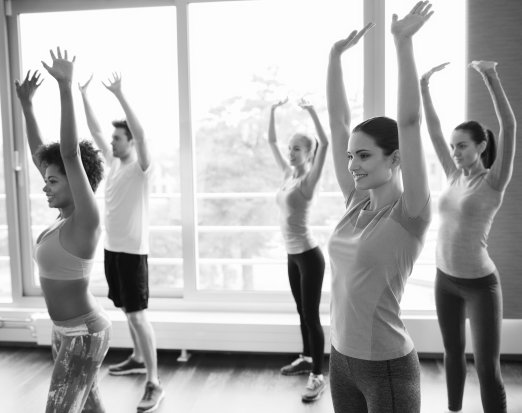Are physical activity targets too high?

There’s been a lot of news in the press recently about the benefits of just 20 minutes of exercise a week… Yes, a week – not a day. This seems like a bit of a U-turn. The goal posts are constantly moving but, for once, they’re moving in the right direction. So what’s the thinking behind this latest exercise target?
In 2013, the World Health Organisation published its Global Action Plan, with the aim of reducing the number of preventable diseases caused by people’s unhealthy lifestyles. This action plan recognised the four biggest risk factors that contribute to preventable diseases such as smoking, excessive alcohol consumption, unhealthy diet and physical inactivity.
It’s no secret that too much of the first three will have serious consequences for a person’s health and, with as many as 35% of adults being at risk of developing type 2 diabetes, it is becoming more important than ever for people to take action. It seems, however, that the final point is causing the most confusion.
There is still a lack of clarity surrounding the amount of physical activity a person must do to feel the benefit. A report by the WHO suggests that the current target of 150 minutes of exercise per week is unattainable for many (especially the elderly), and urges health professionals to promote the benefits of small, more attainable levels of physical exercise as part of a gradual path to a more healthy lifestyle.
In a similar study at the University of Cambridge, researchers came to the conclusion that just 20 minutes of moderate physical activity (such as a brisk walk) can increase your chances for a longer life by as much as 30 percent.
This revelation has sparked a lot of debate in the press about how we can improve the nation’s health. The majority of this coverage has focused on the bad habits of adults, but few have mentioned what this study means for children. With childhood obesity becoming a ticking timebomb, getting schools and parents to encourage children to become more active is crucial if we are to improve the health of the nation. With subjects such as English & Maths, pupil progress is monitored and reported. Yet when it comes to Physical Education, there exists a ‘hope-for-the-best’ attitude that neglects to track pupil progress. It’s time to take P.E seriously and encourage tutors to track and report their pupil’s progress.
With an aging population and major strain being placed on the nation’s health service, tackling physical inactivity is now one of the most crucial aims for Britain. By taking small steps to a healthier lifestyle, you can reduce your risk of developing a major illness and live a happier, healthier life.
There’s no such thing as too little. We don’t need the experts to tell us – anything is better than none… Oh and twenty minutes a week? That’s nothing really, is it?





